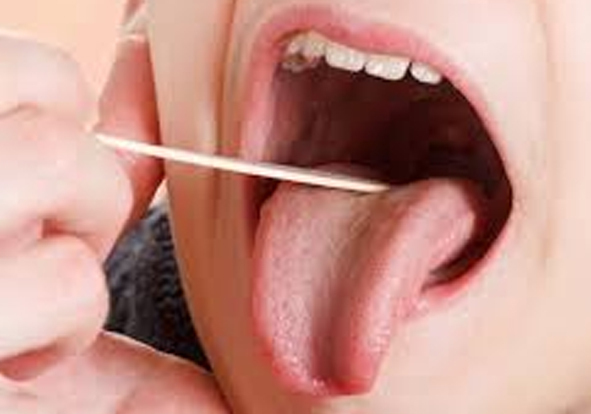Oral Cancer Treatment

Oral cancer, also known as mouth cancer is a type of head and neck cancer recognised by any cancerous tissue growth located in the oral cavity.This type of cancer most commonly involves the tongue. It may also occur on the floor of the mouth, cheek lining, gingiva (gums), lips, or palate (roof of the mouth). Most oral cancers look very similar under the microscope and are called squamous cell carcinoma; the oral cavity where growth takes place includes the following
- The front two thirds of the tongue.
- The gingiva (gums)
- The buccal mucosa (the lining of the inside of the cheeks).
- The floor (bottom) of the mouth under the tongue
- The hard palate (the roof of the mouth).
- The retromolar trigone (the small area behind the wisdom teeth)
It may arise as a primary lesion originating in any of the tissues in the mouth, by metastasis from a distant site of origin, or by extension from a neighbouring anatomic structure, such as the nasal cavity. Alternatively, the oral cancers may originate in any of the tissues of the mouth, and may be of varied histologic types: teratoma, adenocarcinoma derived from a major or minor salivary gland, lymphoma from tonsillar or other lymphoid tissue, or melanoma from the pigment-producing cells of the oral mucosa.Oral or mouth cancer most commonly involves the tongue. It may also occur on the floor of the mouth, cheek lining, gingiva (gums), lips, or palate (roof of the mouth). Most oral cancers look very similar under the microscope and are called squamous cell carcinoma.
The actual cause of oral cancer is not clear yet. However, some factors may increase the risk of the developing oral cancer. They include:
- Aged above 55 years
- Consumption of tobacco in any form (smoking or tobacco chewing)
- Increased amount of alcohol consumption
- Excessive sun exposure of the lips
- Human papillomavirus (HPV) infection
- Having a weak immune system
- Having lichen planus
Treatment:
- Surgery: It is usually the first treatment choice for oral cancer that is benign, small, or in an early stage. Based on the stage of cancer, surgeries can be of the following types:
- For localized tumour: The tumour along with the margin of healthy tissue (to ensure complete tumour removal) is excised. Small tumours can be removed through minor surgery, whereas, removal of large tumours may need more extensive procedures. In some cases, a section of the jawbone or portion of the tongue may also be removed along with the large tumours.
- For cancer that has spread to the neck: If the cancer cells have spread to the lymph nodes in the neck region or if there is a high risk of spreading up to the lymph nodes, the neck dissection may be done. In this procedure, cancerous cells that may have spread to the lymph nodes are removed.
- Radiation Therapy: It is a type of cancer treatment, which uses high energy beams, like X-rays or protons, to destroy cancer cells.
- Chemotherapy: It is a type of treatment in which medications are used to kill the cancer cells. It can be given as a single treatment or in combination with other treatments like radiation therapy or surgery. In this therapy, a single chemotherapy drug can be given, or a combination of different drugs can be given. The dose of the chemotherapy drug depends on the type of cancer, stage of cancer, and health of the patient.
- Targeted Therapy: This therapy obstructs the way cells grow and divide. The targeted therapy drugs inhibit certain factors that support growth and division of cancer cells. Targeted drugs can be given alone or in combination with radiation therapy or chemotherapy.
- Immunotherapy: Immune therapy involves using medications which stimulate the immune system to fight against cancer.










